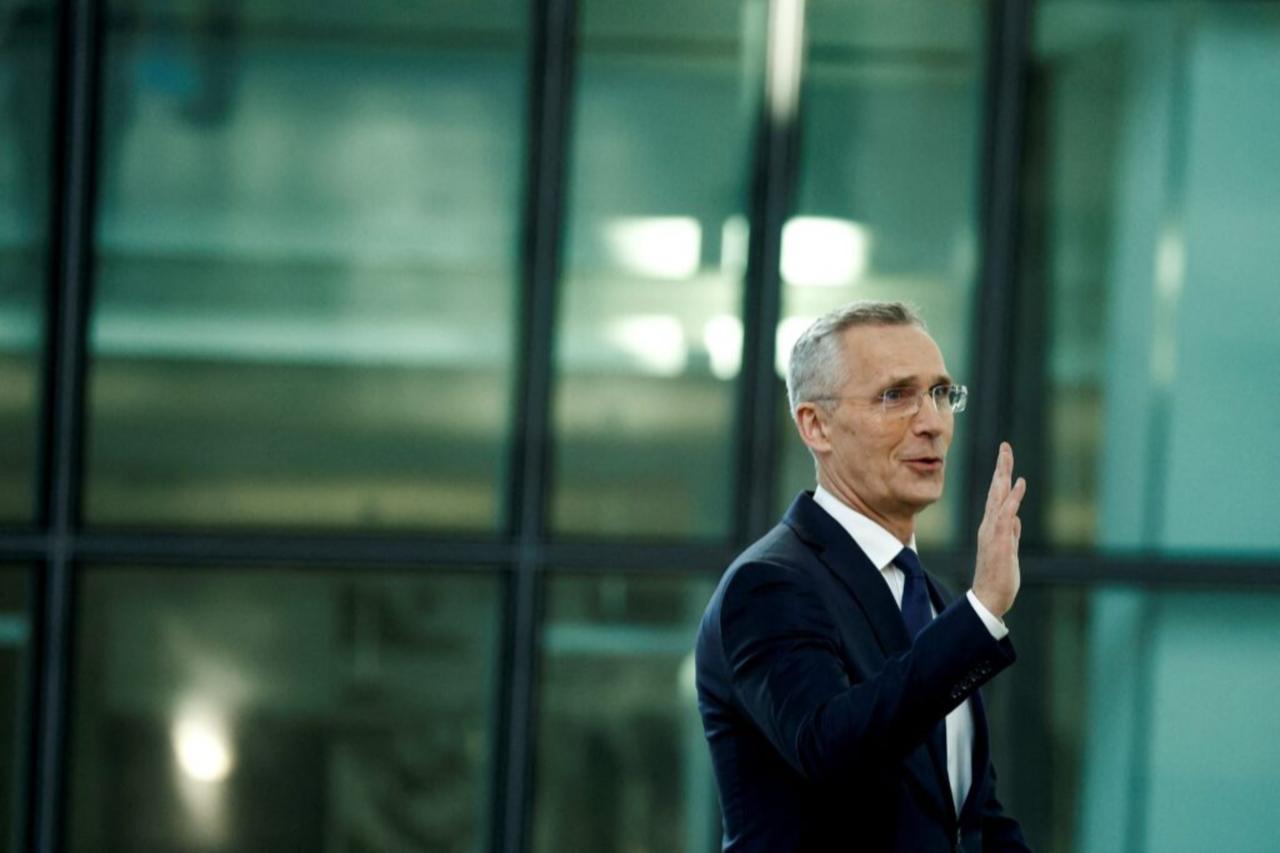
President Recep Tayyip Erdogan praised former NATO Secretary General Jens Stoltenberg on Friday for candidly documenting their interactions in his recently released memoir, describing their relationship as emblematic of effective diplomatic engagement.
Speaking to journalists aboard his aircraft on Thursday while returning from a three-nation Gulf tour, Erdogan responded to questions about Stoltenberg's book "On My Watch: Leading NATO in a Time of War," which recounts the former alliance chief's 10-year tenure managing the military alliance.
Stoltenberg's memoir includes extensive accounts of meetings with President Erdogan, detailing how the Turkish president advocated for NATO's support during critical moments, including the 2015 downing of a Russian military aircraft and the 2019 Operation Peace Spring in northern Syria.
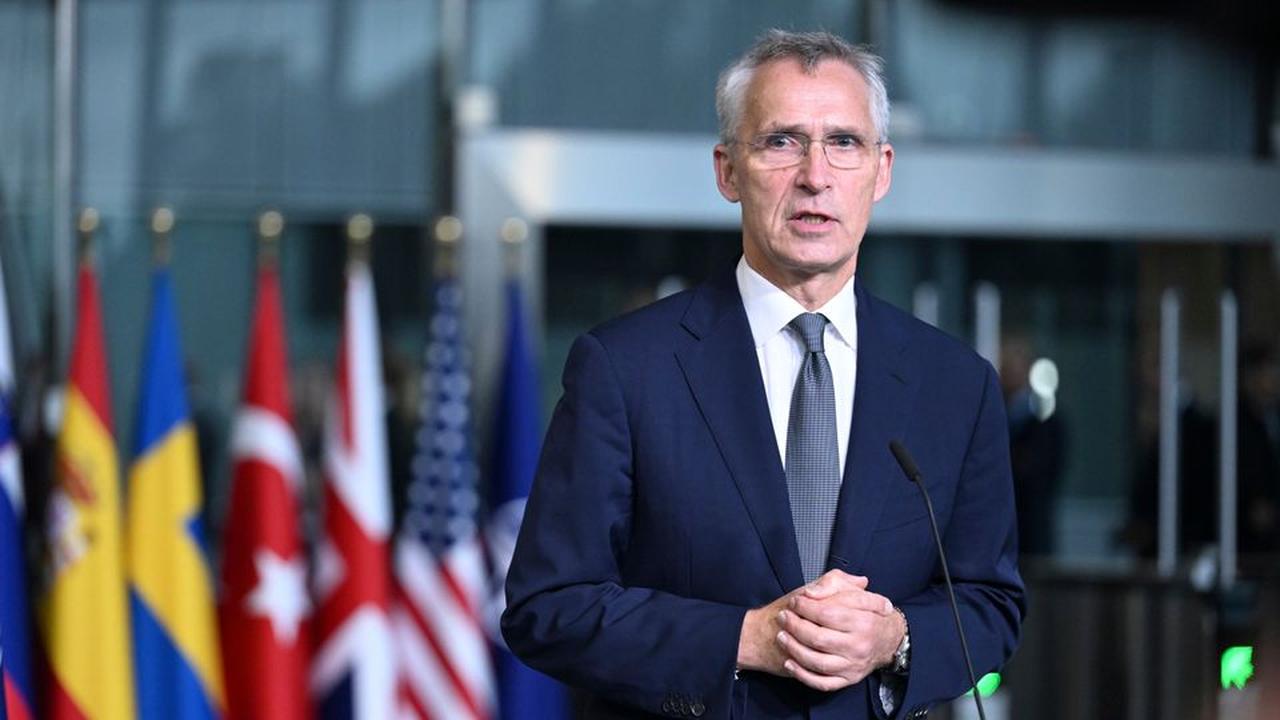
In his memoir, Stoltenberg recounts the NATO response to Türkiye's shooting down of a Russian Su-24 aircraft near the Turkish-Syrian border after it violated Turkish airspace.
"NATO's military authorities confirmed that the plane had been in Turkish airspace, and it was becoming urgent that we go public with a reaction to the incident," Stoltenberg wrote, noting that while he expressed NATO's solidarity with Ankara, "deep disagreement" ran through the alliance during the crisis.
Eastern European countries backed Türkiye in demanding that NATO stand by Ankara's actions, supporting the deployment of additional air defense systems and fighter jets along the Syrian border.
France and Italy opposed explicit NATO support for Türkiye, while Germany called for a more measured response.
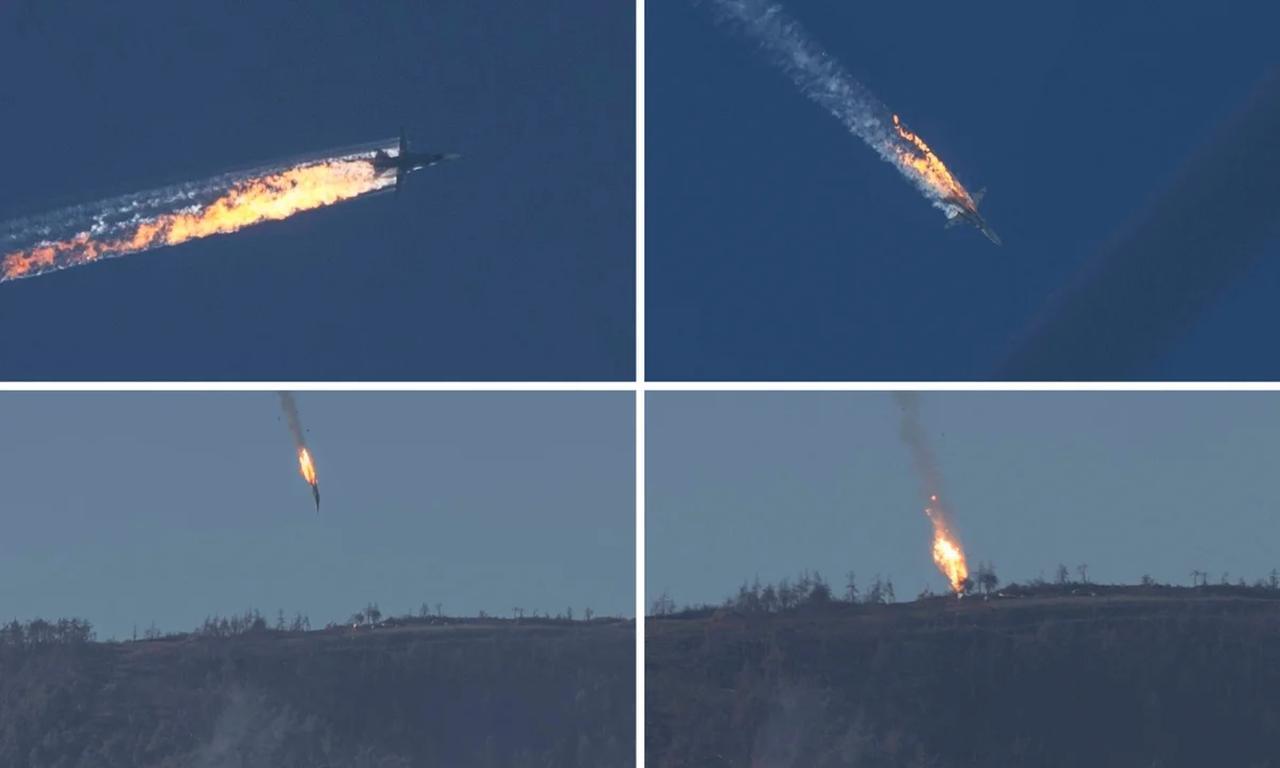
Stoltenberg documented extensive conversations with President Erdogan about terrorism. The Turkish president articulated his position on the PKK and YPG terrorist organizations, arguing that the West's distinction between the groups contradicted earlier positions.
Stoltenberg quoted Erdogan as stating, "The YPG are terrorists. You've said as much yourself before. So why do you no longer think this? Ah, you need them to fight IS (Daesh), of course. But that makes them no less terroristic."
According to Stoltenberg, Erdogan pressed the NATO chief on the logical inconsistency of Western military interventions against Daesh. "What right do the U.S., U.K. and other NATO countries have to send soldiers and warplanes to combat Daesh terrorists if going to Syria to neutralize terrorists constitutes a violation of international law?" Stoltenberg recalled Erdogan asking.
Reflecting on the argument, Stoltenberg acknowledged: "Again, Erdogan had a point. Through the U.S.-led coalitions to which NATO was also a party, we were running a comprehensive military operation on the ground and in the air to annihilate Daesh. We were doing this without a clear resolution from the U.N. Security Council. And we were acting in what we believed to be self-defense. Just like Türkiye."
Stoltenberg also noted that Erdogan had spoken extensively about terrorist attacks and deaths in Türkiye. "I couldn't vouch for the accuracy of his figures, but it was a fact that no other NATO member had been subjected to more acts of terrorism than Türkiye," Stoltenberg wrote.
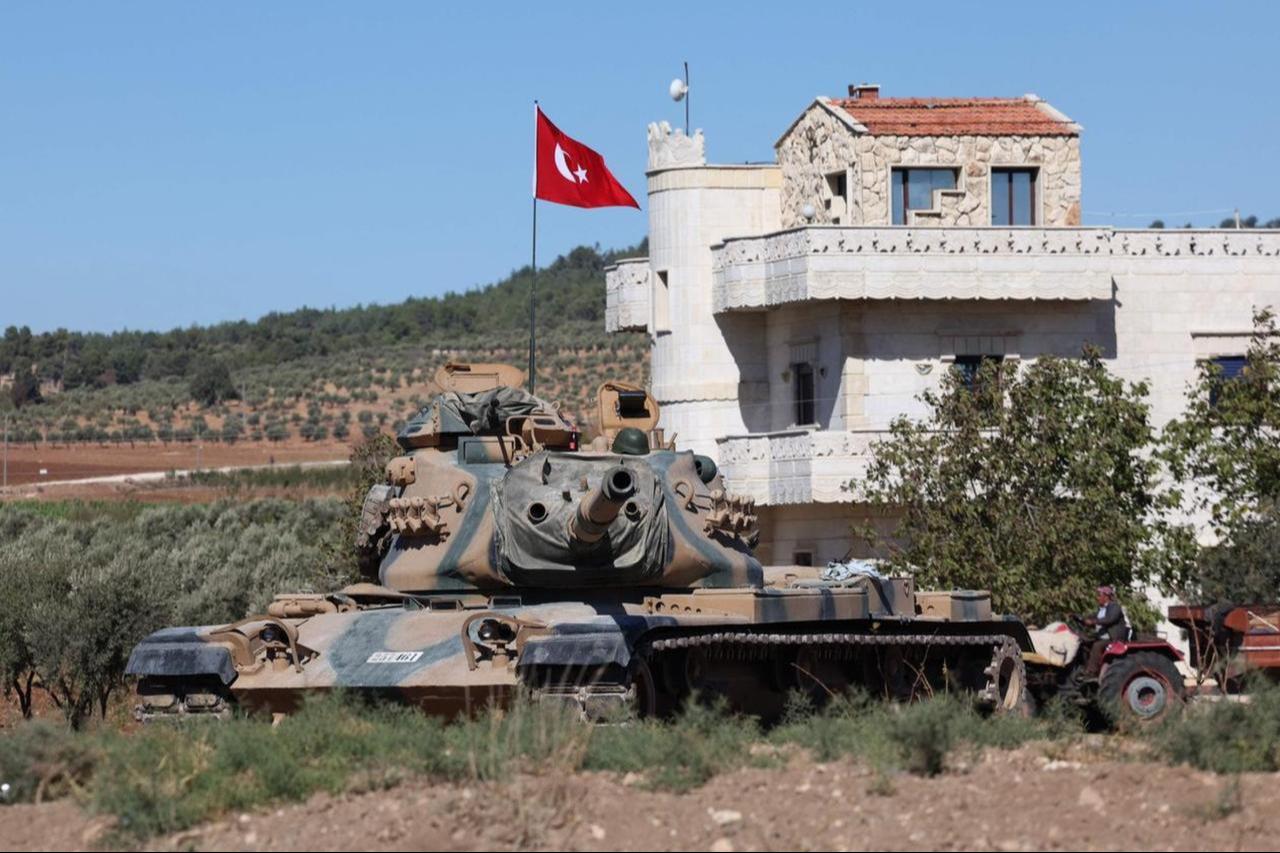
Stoltenberg emphasized Türkiye's pivotal role in Sweden and Finland's accession to NATO, stating that "it was President Erdogan who held the key."
The former NATO chief documented how relations between Türkiye and Sweden deteriorated after a right-wing extremist burned a copy of the Quran outside the Turkish embassy in Stockholm on Jan. 21.
"Erdogan made it clear that a country which tolerates such blasphemy could not expect Türkiye to support its applications to join NATO. All meetings in the negotiations between Türkiye, Finland and Sweden were suspended," Stoltenberg wrote.
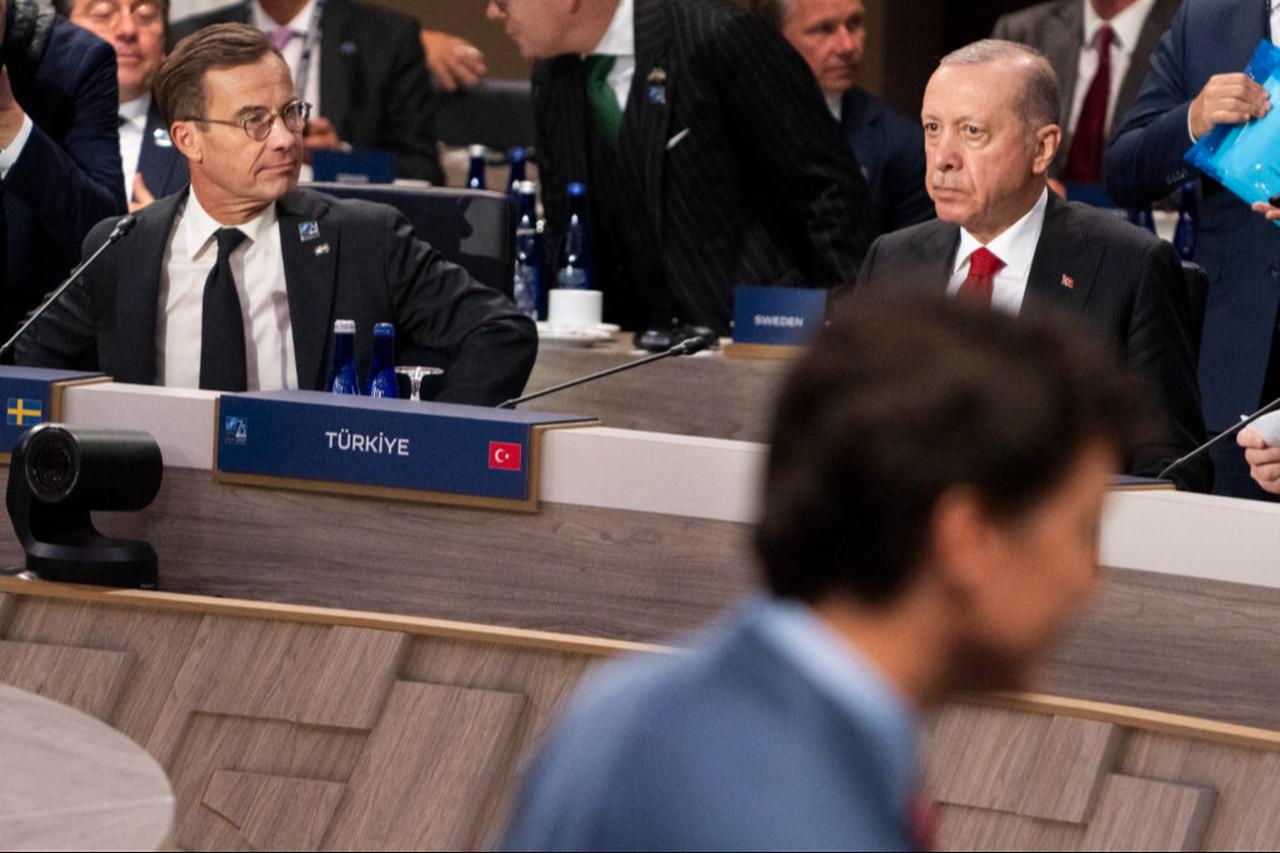
Responding to questions about the memoir, Erdogan emphasized the importance of personal diplomatic relationships in conveying Türkiye's positions to Western leaders.
"Stoltenberg was genuinely one of the NATO Secretary Generals with positive approaches," Erdogan said.
"He was a family guest with us, a friend we took on family outings on the Bosphorus. These are not ordinary events. This is what diplomacy requires. That is why these kinds of relationships are important," he added.
Erdogan noted that Stoltenberg's decision to include these personal details in his memoir underscores the continuing importance of such relationships.
"The current Secretary General, Mark Rutte, has very good relations with us as well. That Stoltenberg evaluated these matters in his memoirs demonstrates how important the continuation of these relationships will be. Allah willing, in our first meeting, we will mutually analyze this book," Erdogan said.
Erdogan also referenced a personal gesture during Stoltenberg's visits. "How could I not remember? We always offer our guests seasonal refreshments—corn when it's in season, chestnuts when it's their time. These are diplomatic requirements," he said, adding that such interactions strengthen relations between nations.
The Turkish president described his relationship with Stoltenberg as one that evolved significantly during the former NATO chief's tenure, driven by strategic necessity, saying, "My relationship with Stoltenberg was no different from other Western European leaders when he was Norwegian premier. But it changed during his time as NATO chief due to Türkiye's strategic importance in the fight against Daesh and ultimately in the admission of new countries to NATO."
Stoltenberg also highlighted in his memoir the Western response to Türkiye's 2016 failed coup attempt, noting that "he witnessed firsthand how devastating it was for the nation."
"I expressed my support for Türkiye's legitimate and elected government on the night of the coup attempt," Stoltenberg wrote. However, Turkish people and Erdogan "were deeply disappointed at other reactions in the West, which they believed to be too timid and too late."
"Erdogan and Turkish citizens considered the coup attempt an act of terrorism and sought support from the wider world," Stoltenberg emphasized.